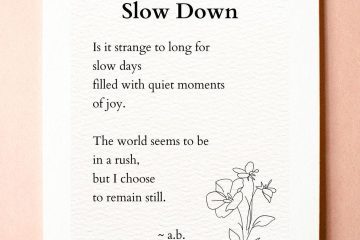Table of Contents
- Understanding the Landscape of Poetry Competitions
- Crafting Your Unique Voice for Competition Success
- Navigating Submission Guidelines and Deadlines
- How to Prepare for Live Readings and Judging Panels
- Celebrating Your Wins: What to Do After the Competition
- Q&A
- Final Thoughts


Understanding the Landscape of Poetry Competitions
Poetry competitions provide a dynamic platform for poets of all ages and backgrounds to showcase their talents and gain recognition. They can vary widely in format, scope, and purpose, catering to both established writers and newcomers eager to make their mark in the literary world. Many competitions focus on specific themes, styles, or even forms of poetry, creating an exciting mix of creativity and competition. Whether you’re writing free verse, sonnets, or haikus, participating in these events can significantly enhance your writing skills while connecting you with like-minded individuals who share your passion for verse.
When navigating through the numerous poetry competitions available, it’s important to consider several key factors:
- Eligibility: Some competitions are open to all poets, while others may have restrictions based on age, experience, or geographic location.
- Submission Guidelines: Each competition typically has specific rules regarding the number of poems you can submit, formatting requirements, and deadlines.
- Prizes and Publications: Winners may receive monetary awards, publication opportunities, or invitations to prestigious readings, enhancing their literary profile.
To give an overview of some notable poetry competitions, consider the following table, which highlights a few popular options and their key features:
| Competition Name | Eligibility | Prizes |
|---|---|---|
| Living Poetry Awards | Open to all | $500 + publication |
| Collegiate Poetry Contest | College students only | $250 + Feature in a journal |
| Global Youth Poetry Slam | Ages 12-18 | $1,000 + mentorship |
Engaging in poetry competitions not only allows poets to gauge their work against others but also encourages the exploration of new themes and styles. As poets submit their creations, they might receive feedback that can refine their craft and expand their literary horizons. With persistence and dedication, a successful competition experience can pave the way for future opportunities within the vibrant world of poetry.


Crafting Your Unique Voice for Competition Success
Finding your distinct voice is essential in a sea of poetry competition entries. To cultivate this voice, start by immersing yourself in diverse influences. Read a range of poets, from the classics to contemporary voices. Consider the following approaches to refine your style:
- Experiment with Different Forms: Try sonnets, Haikus, free verse, or even spoken word. Each form can reveal a different facet of your creative self.
- Reflect Personal Experiences: Draw inspiration from your life, emotions, and surroundings. Authenticity resonates with judges.
- Play with Language: Embrace the beauty of words—use imagery, alliteration, and metaphor to enhance your work.
Once you’ve honed your voice, consider how it stands out in competition. Analyze previous winners and note how they’ve crafted their pieces to capture attention. A snapshot of their techniques might reveal key patterns:
| Technique | Description |
|---|---|
| Evocative Imagery | Utilizes vivid descriptions that ignite the reader’s senses. |
| Unique Perspectives | Presents familiar themes through unconventional angles. |
| Emotional Resonance | Connects deeply with readers’ feelings, often sparking introspection. |
Your unique voice is a potent asset in poetry competitions. By weaving personal narratives with compelling techniques, you’ll not only captivate judges but also create work that resonates with a broader audience. Remember to stay true to your essence; this authenticity is what ultimately sets you apart and paves the way for your success.
Navigating Submission Guidelines and Deadlines
When it comes to poetry competitions, understanding the submission guidelines is crucial for showcasing your work effectively. Each contest has its own specific requirements that can vary widely. Pay attention to details such as word count limits, formatting preferences, and types of poetry accepted. Some competitions may only accept unpublished works, while others might allow previously published pieces. Make note of any specified theme or style that the judges are looking for, as aligning your submission with these criteria can greatly increase your chances of success.
Alongside adhering to submission guidelines, keeping track of deadlines is equally important. Many competitions operate on tight schedules, and missing a deadline can mean disqualification. To manage this effectively, consider creating a personalized submission calendar that includes:
- Submission dates
- Notification dates for winners
- Payment deadlines for entry fees
| Competition Name | Submission Deadline | Entry Fee |
|---|---|---|
| National Poetry Month Contest | April 10, 2024 | $15 |
| City Literary Awards | May 1, 2024 | Free |
| Global Poetry Slam | June 15, 2024 | $20 |
To ensure your submission adheres to the latest expectations, regularly check the competition’s website for any updates or changes. Following these steps not only maximizes your submission’s potential but also demonstrates professionalism and respect for the organizers. Keeping your submissions organized, timely, and tailored will help you stand out in a competitive field.


How to Prepare for Live Readings and Judging Panels
Preparing for live readings and judging panels involves a multifaceted approach that encompasses practice, presentation, and psychological readiness. To begin with, it’s crucial to hone your poem to perfection. Read your poem aloud multiple times to identify any awkward phrasing, pacing issues, or emotional flares that may not translate well in front of an audience. Consider recording your readings to analyze your tone, clarity, and expression. Here are some techniques to enhance your delivery:
- Practice in front of a mirror: This can help you become aware of your body language and facial expressions.
- Gather feedback: Share your poem with trusted friends or mentors to gain insights and suggestions.
- Set a schedule: Allocate dedicated time for practice sessions leading up to the event.
Equipping yourself with the right materials for the event is also essential. Make sure you bring several printed copies of your poem—one for yourself, and others for judges if requested. Additionally, create a visual appeal by selecting an outfit that aligns with the tone of your piece while ensuring you feel comfortable and confident. consider the logistical aspects: know the venue, arrive early, and familiarize yourself with the stage layout. Here’s a simple checklist to ensure you’re covered:
| Checklist Item | Status |
|---|---|
| Practice readings scheduled | ✓ |
| Extra poem copies prepared | ✓ |
| Appropriate attire selected | ✓ |
| Venue details confirmed | ✓ |
Lastly, emotional preparation can greatly enhance your performance. Before stepping onto the stage, take a moment to practice breathing exercises to calm your nerves. Visualize a successful reading, focusing on the engagement and positivity from your audience. Embrace the energy of the moment, transform any anxiety into excitement, and remember that every poetry competition is as much about sharing your voice as it is about judgment. Engaging with your poem authentically will resonate more deeply with both judges and the audience.


Celebrating Your Wins: What to Do After the Competition
After the final word has been spoken and the judges have announced the results, it’s time to take a moment to appreciate your journey as a participant in the poetry competition. Whether you won, placed, or simply participated, acknowledging your efforts is key. Celebrate your victories, big or small, by sharing your experience with friends and family. Take the time to reflect on what you learned through the competition and how it helped you grow as a poet. Consider creating a social media post or blog entry where you can express gratitude and share snippets of your work with others.
Engaging with your fellow participants can also amplify your sense of accomplishment. Host a casual gathering or a virtual meet-up where everyone can share their poems and provide constructive feedback. This fosters a community spirit and encourages camaraderie among poets. Organizing a poetry reading night or joining a local book club focused on poetry can elevate your network and inspire further creativity. Connect with others who shared the stage with you; their stories could ignite new ideas for your next piece.
take practical steps to build on your momentum after the competition. Compile your poems into a cohesive collection, or consider submitting them to literary journals. Set specific goals for your writing, such as aiming for a certain number of submissions each month or experimenting with different styles. Keeping a success log can enhance your motivation, where you jot down your achievements, feedback received, and plans for improvement. Here’s a simple way to track your aspirations:
| Goal | Deadline | Status |
|---|---|---|
| Submit to a literary journal | End of Month | Pending |
| Write 5 new poems | 2 Weeks | In Progress |
| Host a poetry night | Next Month | Planned |
Q&A
Q&A: All You Need to Know About Poetry Competitions
Q1: What are poetry competitions? A: Poetry competitions are contests where poets submit their original works to be judged based on creativity, style, and overall quality. These competitions can range from local contests to prestigious national or international events, often offering prizes like publication opportunities, cash rewards, or mentorship from established poets.Q2: Who can enter poetry competitions? A: Most poetry competitions are open to poets of all levels, from budding writers to seasoned professionals. Some competitions may have specific age groups or themes, while others welcome any style or perspective. It’s essential to check the entry criteria of each competition before submitting your work.
Q3: How do I find poetry competitions to enter? A: There are numerous resources available to find poetry competitions. Websites like Poets & Writers, The Poetry Foundation, and specific literary magazines often list upcoming contests. Social media groups focused on writing and poetry can also be valuable for discovering competitions. Remember to keep an eye on local community events, as they frequently host contests too.
Q4: What makes a winning poem in a competition? A: A winning poem typically combines originality, emotional depth, and technical skill. Judges often look for unique perspectives, compelling imagery, and effective use of poetic devices such as metaphor, rhyme, or rhythm. It’s also essential for the poem to resonate on some level, whether through personal connection or universality of themes.
Q5: Are there fees associated with entering poetry competitions? A: Many poetry competitions charge a submission fee to help cover administrative costs. Fees can vary significantly, ranging from modest amounts to higher sums for more prominent competitions. While some competitions are free to enter, it’s crucial to review the submission guidelines and budget accordingly.
Q6: Can I submit the same poem to multiple competitions? A: This depends on the specific rules of each competition. Some contests allow simultaneous submissions, while others require exclusivity until winners are announced. Always read the guidelines carefully to avoid disqualifying your work and ensure adherence to the rules.
Q7: What should I expect after submitting my poem? A: After submission, you may receive confirmation of your entry, but the response time varies by competition. Some announce winners within a few weeks, while others take several months. While waiting, it’s common to experience a mix of anticipation and anxiety, but remember that every submission is an opportunity for feedback and growth as a poet.
Q8: What are the potential benefits of entering poetry competitions? A: Participating in poetry competitions can elevate your writing career in numerous ways. You gain exposure and credibility, receive constructive feedback, and potentially connect with fellow writers. Winning or placing in competitions can also open doors for publication and networking opportunities, making it a valuable experience for any poet.
Q9: Do I retain the rights to my poem after entering a competition? A: Generally, entering a poetry competition does not relinquish your rights as the author, though this can vary depending on the competition’s terms. Most competitions require that you retain the rights to your work while granting them temporary rights for publication or promotional purposes if you win. Always review the competition rules regarding rights and publication.
Q10: How can I improve my chances of success in poetry competitions? A: To boost your success in poetry competitions, focus on honing your craft through regular writing and seeking feedback from peers or writing groups. Pay attention to submission guidelines, tailor your work to match the competition’s theme or style, and don’t shy away from editing and revising your poems before submission. Lastly, broaden your horizons by reading a diverse range of poetry to inspire and inform your own writing.—Engaging in poetry competitions can be a rewarding experience, offering both a platform for your voice and a community of fellow wordsmiths. Whether you’re new to poetry or an established writer, don’t hesitate to put your work out there!




0 Comments